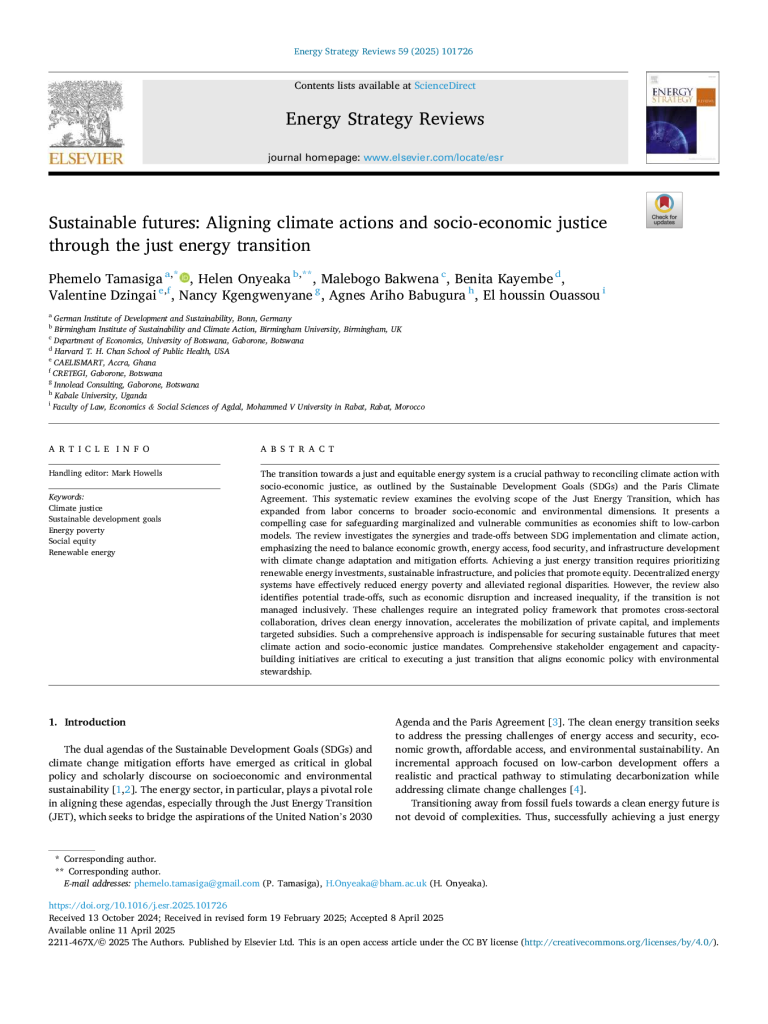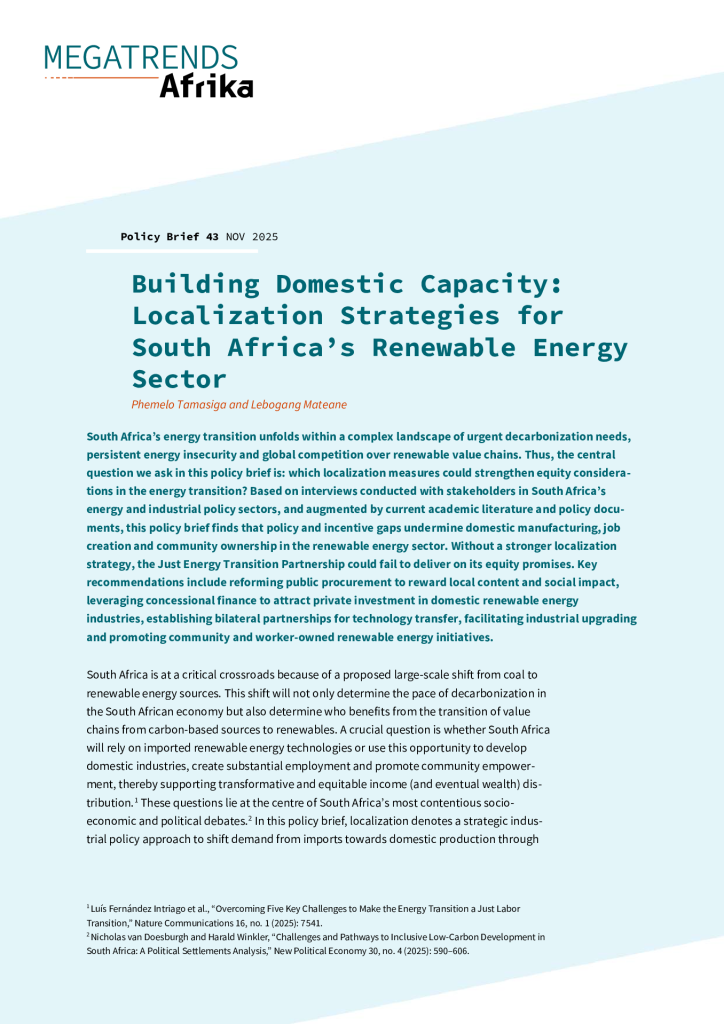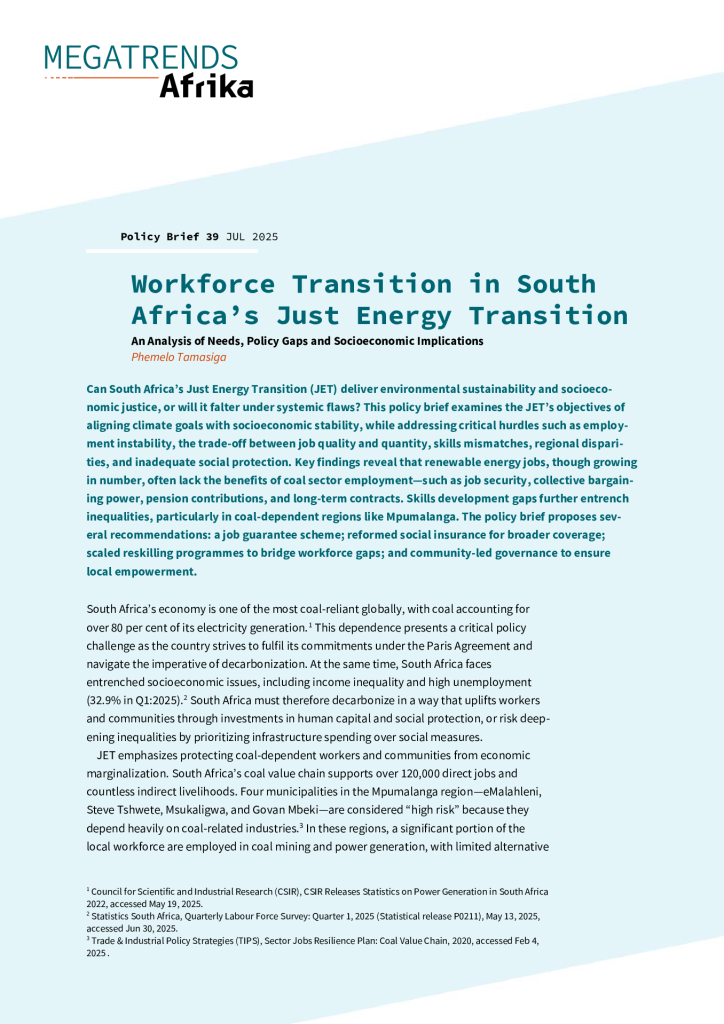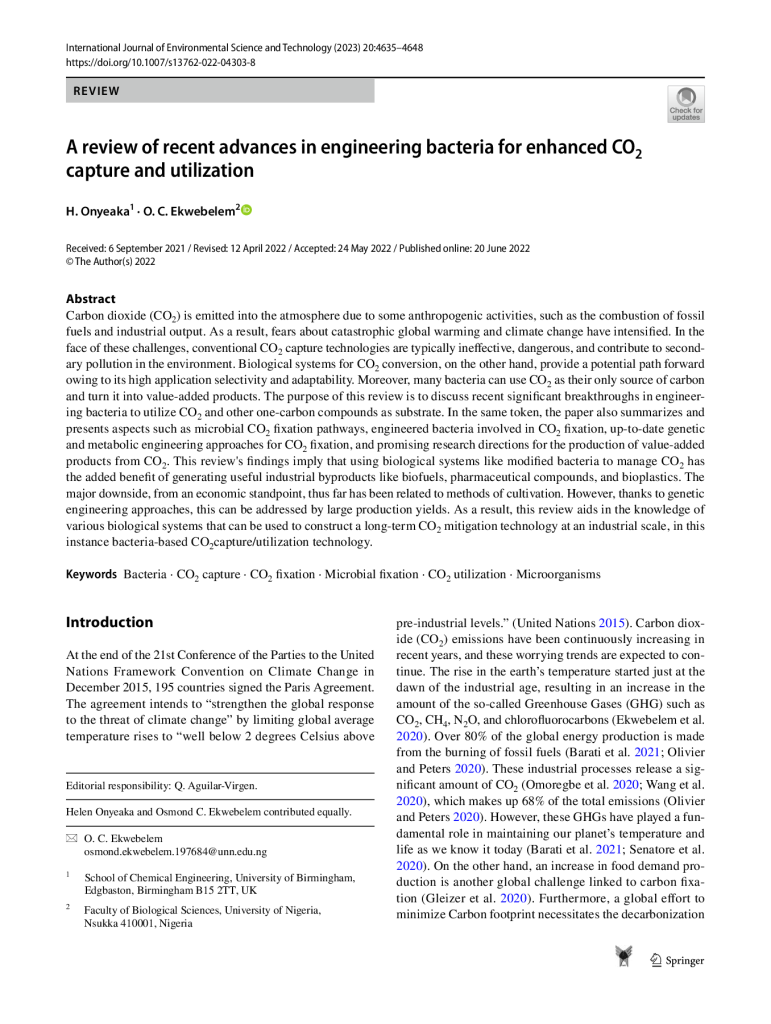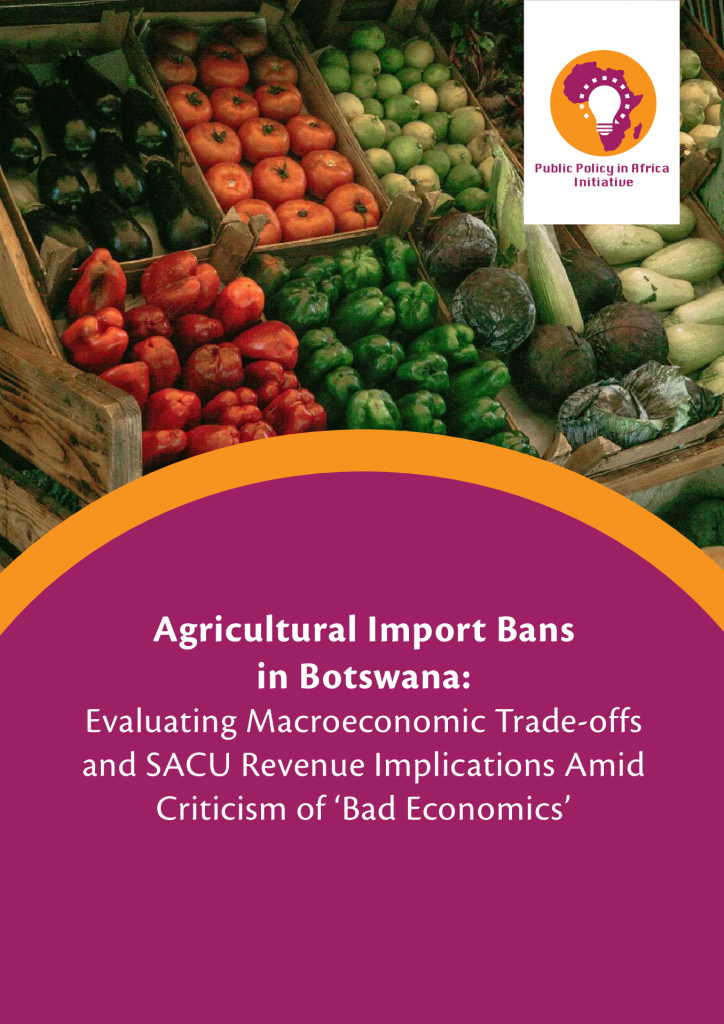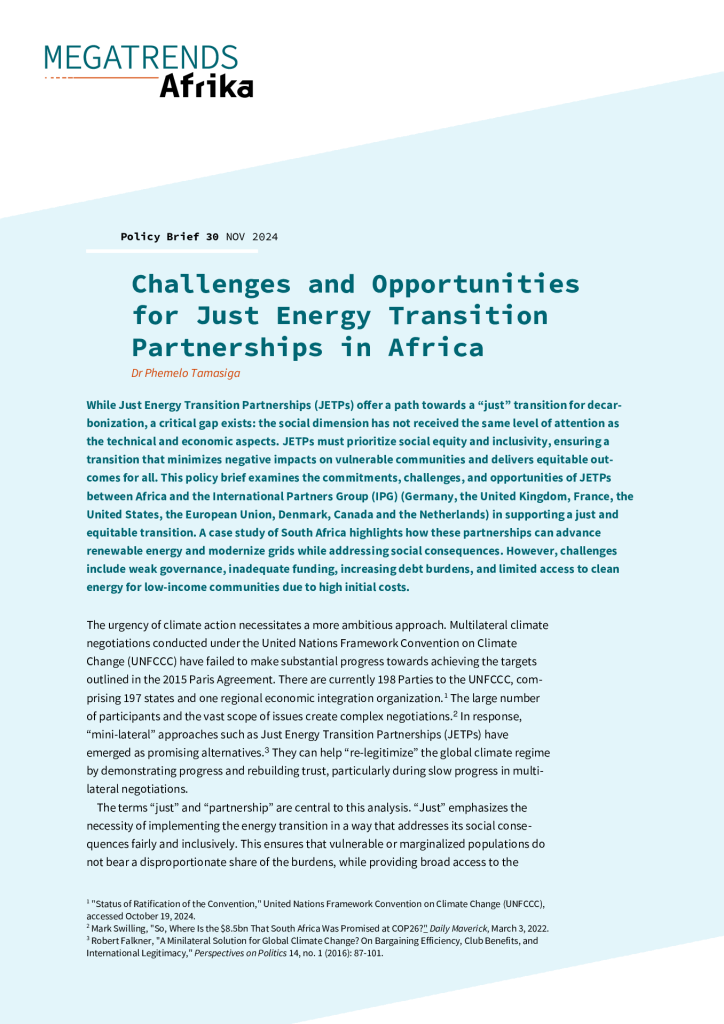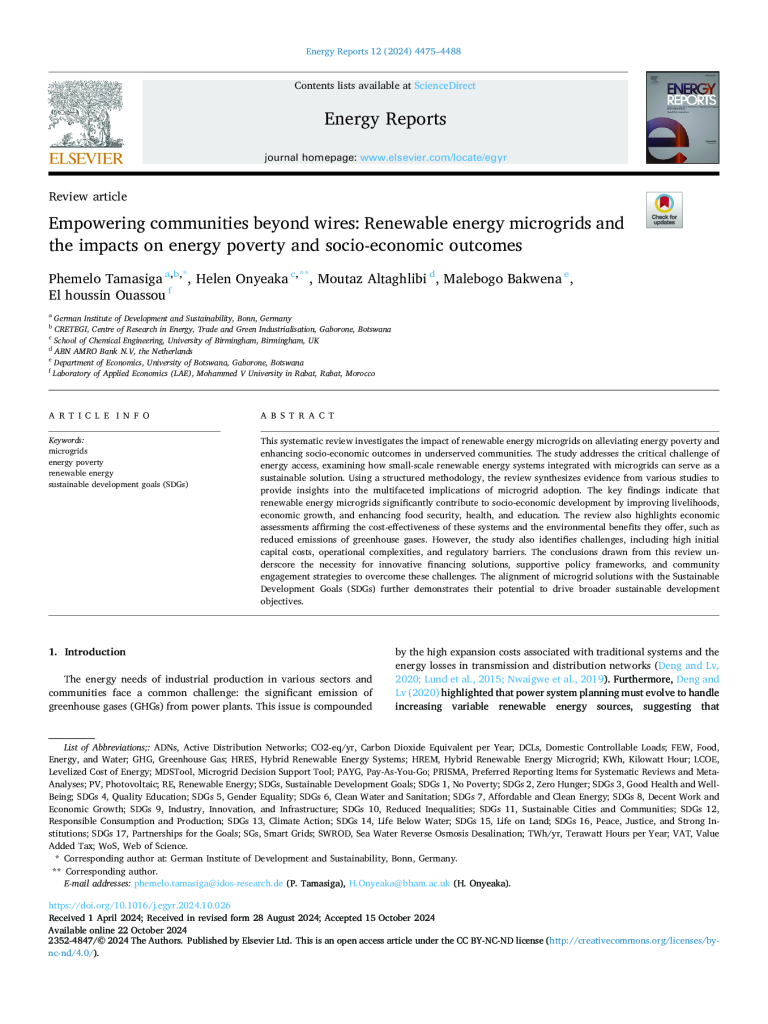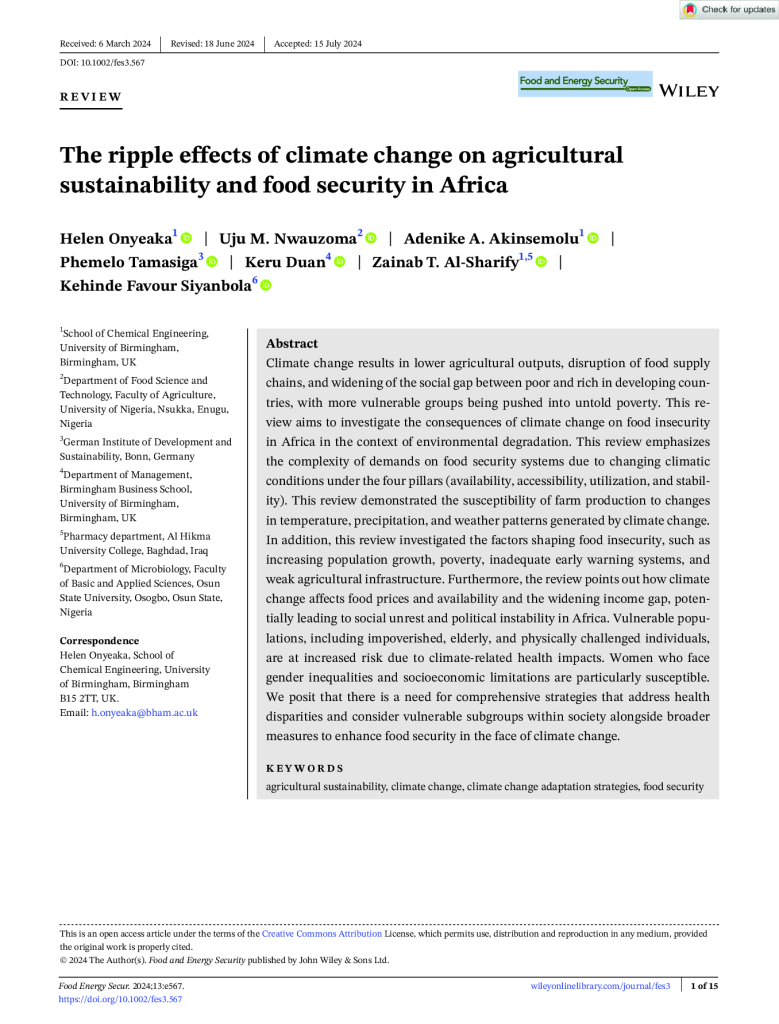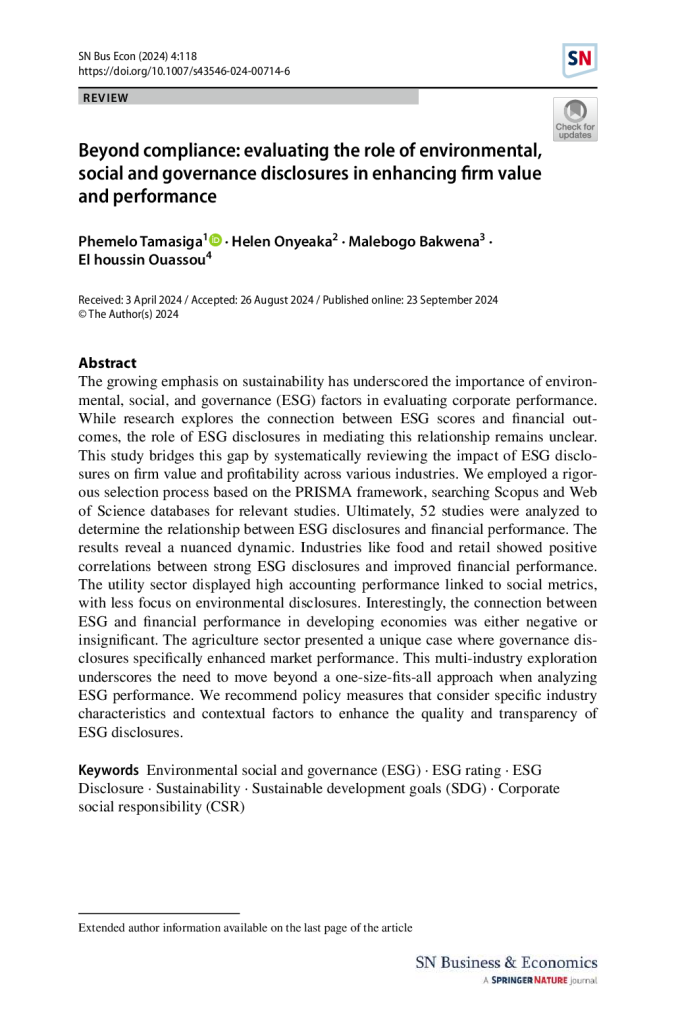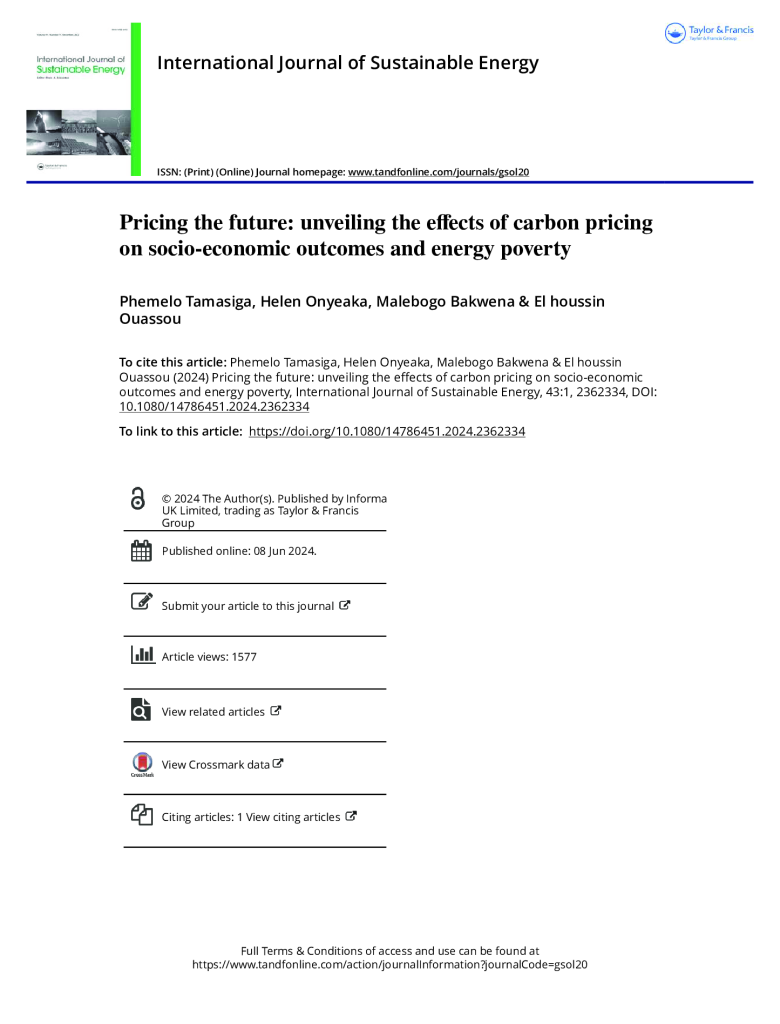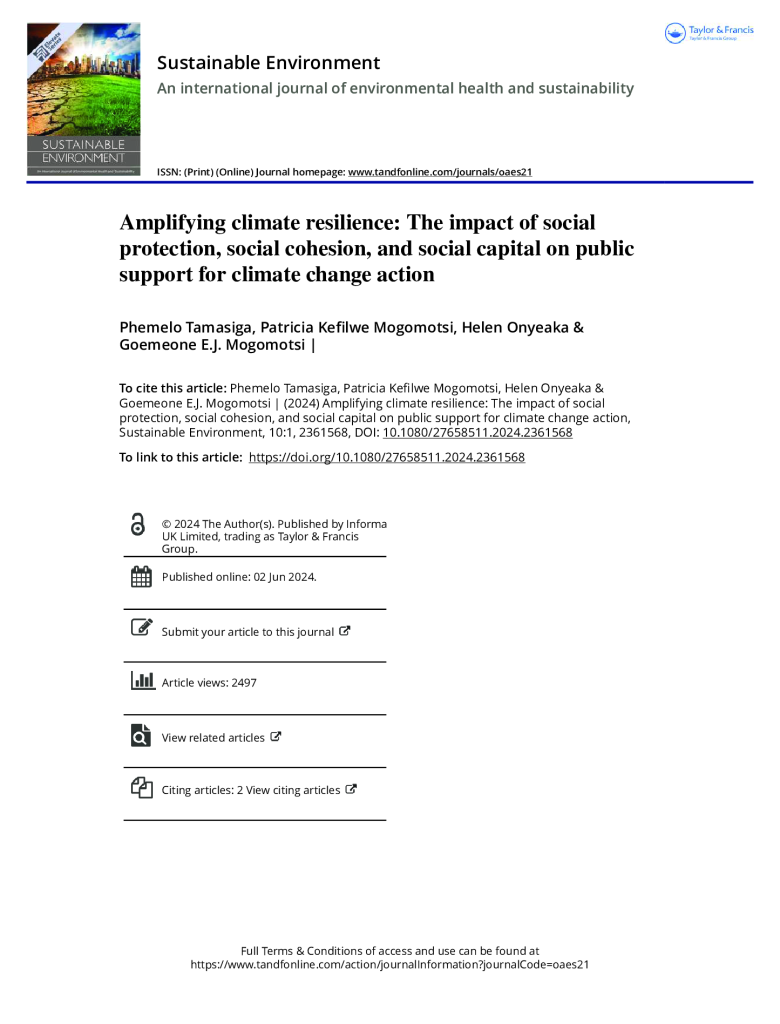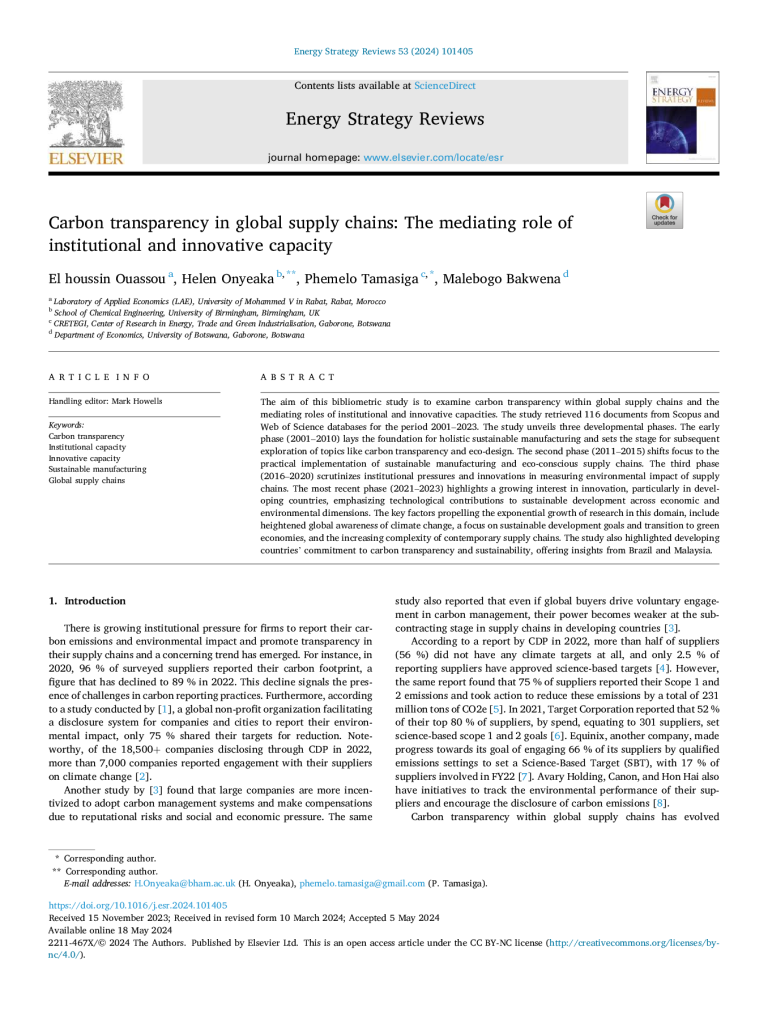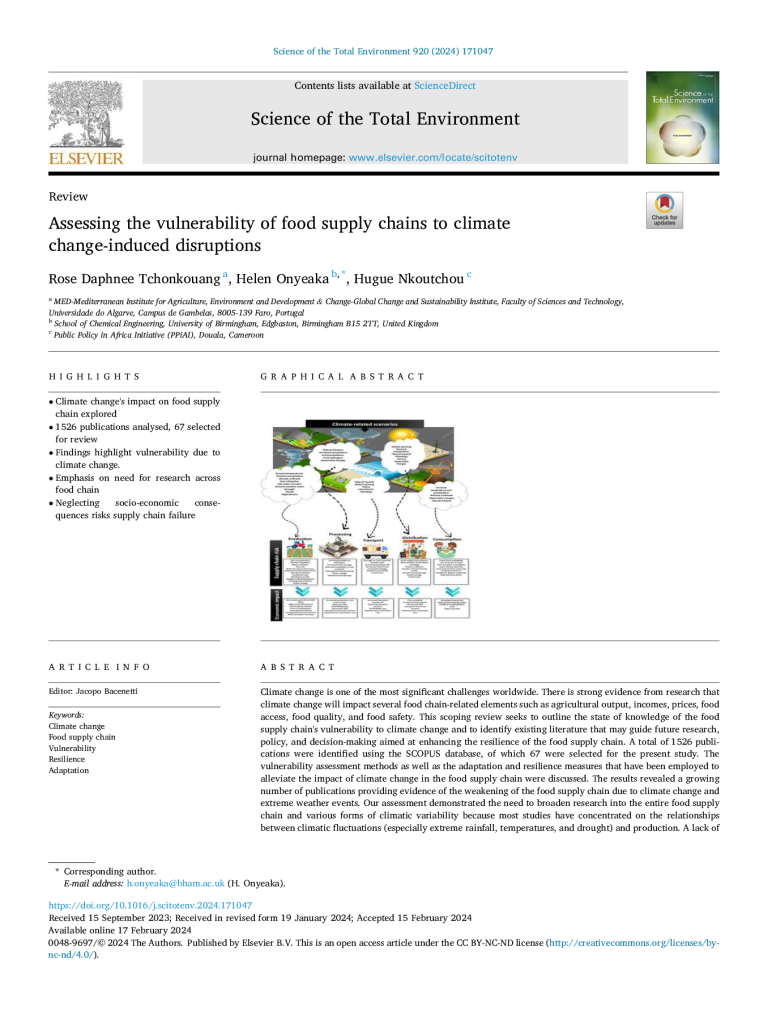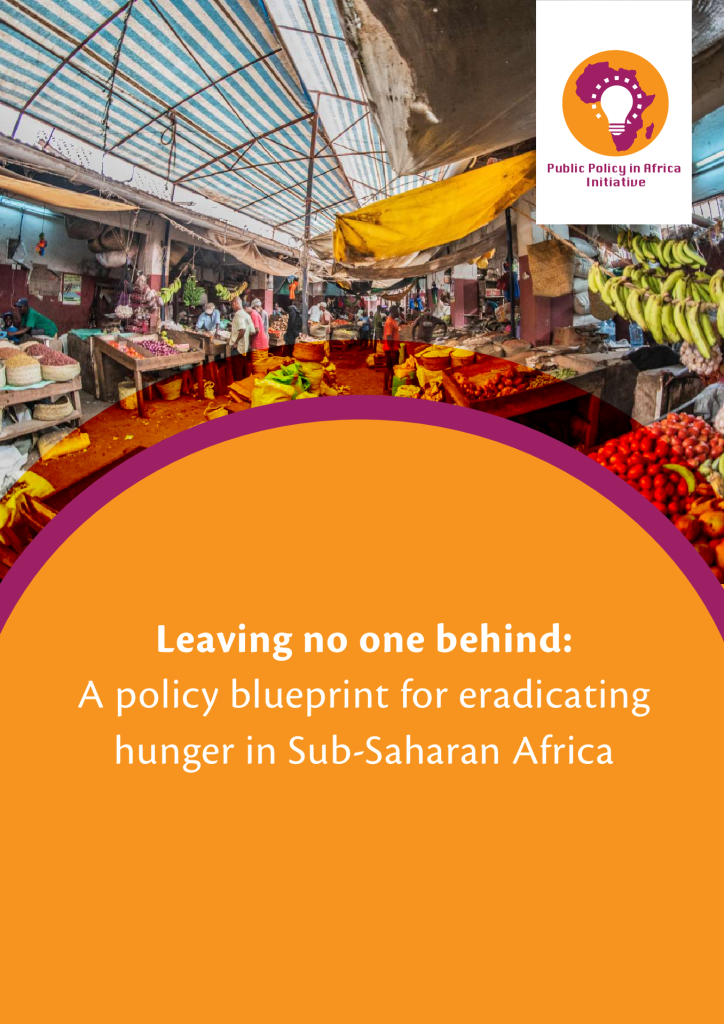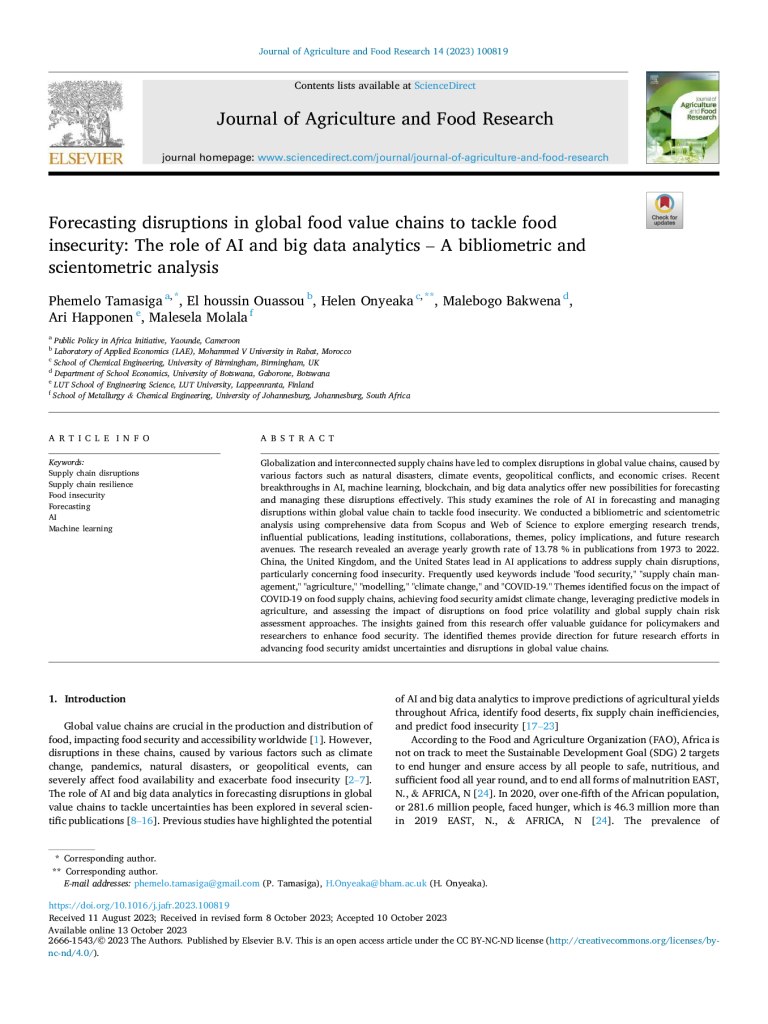
Climate actions and socio-economic justice through the energy transition
The transition towards a just and equitable energy system is a crucial pathway to reconciling climate action with socio-economic justice, as outlined by the Sustainable Development Goals (SDGs) and the Paris Climate Agreement. This systematic review examines the evolving scope of the Just Energy Transition, which has expanded from labor concerns to broader socio-economic and environmental dimensions. It presents a compelling case for safeguarding marginalized and vulnerable communities as economies shift to low-carbon models. The review investigates the synergies and trade-offs between SDG implementation and climate action, emphasizing the need to balance economic growth, energy access, food security, and infrastructure development with climate change adaptation and mitigation efforts. Achieving a just energy transition requires prioritizing renewable energy investments, sustainable infrastructure, and policies that promote equity. Decentralized energy systems have effectively reduced energy poverty and alleviated regional disparities. However, the review also identifies potential trade-offs, such as economic disruption and increased inequality, if the transition is not managed inclusively. These challenges require an integrated policy framework that promotes cross-sectoral collaboration, drives clean energy innovation, accelerates the mobilization of private capital, and implements targeted subsidies. Such a comprehensive approach is indispensable for securing sustainable futures that meet climate action and socio-economic justice mandates. Comprehensive stakeholder engagement and capacity-building initiatives are critical to executing a just transition that aligns economic policy with environmental stewardship.
Localization Strategies for South Africa’s Renewable Energy Sector
South Africa’s energy transition unfolds within a complex landscape of urgent decarbonization needs, persistent energy insecurity and global competition over renewable value chains. Thus, the central question we ask in this policy brief is: which localization measures could strengthen equity considerations in the energy transition? Based on interviews conducted with stakeholders in South Africa’s energy and industrial policy sectors, and augmented by current academic literature and policy documents, this policy brief finds that policy and incentive gaps undermine domestic manufacturing, job creation and community ownership in the renewable energy sector. Without a stronger localization strategy, the Just Energy Transition Partnership could fail to deliver on its equity promises. Key recommendations include reforming public procurement to reward local content and social impact, leveraging concessional finance to attract private investment in domestic renewable energy industries, establishing bilateral partnerships for technology transfer, facilitating industrial upgrading and promoting community and worker-owned renewable energy initiatives.
Workforce Transition in South Africa’s Just Energy Transition
Can South Africa’s Just Energy Transition (JET) deliver environmental sustainability and socio-economic justice, or will it falter under systemic flaws? This policy brief examines the JET’s objectives of aligning climate goals with socioeconomic stability while addressing critical hurdles, including employment instability, the trade-off between job quality and quantity, skills mismatches, regional disparities, and inadequate social protection. Key findings reveal that renewable energy jobs, though growing in number, often lack the benefits of coal sector employment—such as job security, collective bargaining power, pension contributions, and long-term contracts. Skills development gaps further entrench inequalities, particularly in coal-dependent regions like Mpumalanga. The policy brief proposes several recommendations: a job guarantee scheme; reformed social insurance for broader coverage; scaled reskilling programs to bridge workforce gaps; and community-led governance to ensure local empowerment.
A review of recent advances in engineering bacteria for enhanced CO2 capture and utilization
Anthropogenic CO2 emissions drive global warming and climate change. Conventional CO2 capture technologies often prove ineffective and environmentally harmful. Biological CO2 conversion, particularly using bacteria, offers a promising alternative due to its selectivity and adaptability. This review examines recent advances in engineering bacteria to utilize CO2 and other one-carbon compounds. It covers microbial CO2 fixation pathways, engineered bacteria, genetic and metabolic engineering approaches, and the production of value-added products (biofuels, pharmaceuticals, bioplastics) from CO2. While cultivation costs pose an economic challenge, genetic engineering offers potential for increased production yields. This review contributes to the development of sustainable, industrial-scale CO2 mitigation technologies using bacteria-based capture and utilization.
Agricultural Import Bans in Botswana: Evaluating Macroeconomic Trade-offs and SACU Revenue Implications Amid Criticism of ‘Bad Economics’
This policy brief analyzes Botswana’s horticultural import ban (2022–2025), aimed at boosting local agriculture and reducing import dependency. While benefiting farmers, the ban has raised food prices, fueled inflation, and disrupted SACU trade dynamics. Recommendations include investing in irrigation, adopting advanced agricultural technologies, building resilient market linkages, and revisiting trade policies to balance protectionism with regional commitments. These measures are vital for ensuring long-term agricultural success, fiscal stability, and economic diversification.
Challenges and Opportunities for Just Energy Transition Partnerships in Africa
This policy brief examines Just Energy Transition Partnerships (JETPs) between Africa and the International Partners Group, focusing on social equity in decarbonization. While JETPs aim to modernize grids and advance renewable energy, the social dimension lags behind technical and economic aspects. A South Africa case study highlights progress but reveals challenges like weak governance, insufficient funding, rising debt, and limited clean energy access for low-income communities. To ensure a just transition, JETPs must prioritize inclusivity, minimize impacts on vulnerable groups, and deliver equitable outcomes.
Empowering communities beyond wires: Renewable energy microgrids and the impacts on energy poverty and socio-economic outcomes
This systematic review explores how renewable energy microgrids alleviate energy poverty and improve socio-economic outcomes in underserved communities. It highlights their role in enhancing livelihoods, economic growth, food security, health, and education while reducing greenhouse gas emissions. Despite benefits, challenges like high initial costs, operational complexities, and regulatory barriers persist. The study emphasizes the need for innovative financing, supportive policies, and community engagement to maximize microgrid potential. Aligning with SDGs, microgrids offer a sustainable pathway to broader development goals.
The ripple effects of climate change on agricultural sustainability and food security in Africa
Climate change impacts food security in developing countries, lowering agricultural output, disrupting supply chains, and widening the gap between rich and poor. This review investigates climate change's consequences for African food insecurity within the context of environmental degradation. It examines the complex demands on food security systems (availability, accessibility, utilization, stability) under changing climatic conditions. The review highlights farm production's vulnerability to temperature, precipitation, and weather pattern changes. It also explores factors shaping food insecurity: population growth, poverty, weak infrastructure, and inadequate early warning systems. Climate change affects food prices, availability, and income inequality, potentially leading to social unrest. Vulnerable groups (impoverished, elderly, disabled) face increased risks, with women facing additional gender inequalities. Comprehensive strategies are needed to address health disparities and consider vulnerable subgroups alongside broader food security measures in the face of climate change.
Beyond compliance: evaluating the role of environmental, social and governance disclosures in enhancing firm value and performance
This study investigates the impact of ESG (environmental, social, and governance) disclosures on firm value and profitability across industries. Using the PRISMA framework, 52 studies from Scopus and Web of Science were analyzed. Results show varied outcomes: food and retail sectors benefit from strong ESG disclosures, while utilities focus more on social metrics. Developing economies often show negative or insignificant ESG-financial performance links, and agriculture benefits from governance disclosures. The findings highlight the need for industry-specific ESG approaches and policies to improve disclosure quality and transparency.
Pricing the future: unveiling the effects of carbon pricing on socio-economic outcomes and energy poverty
This systematic review, following PRISMA guidelines, explores the impact of carbon pricing mechanisms on energy poverty and socio-economic outcomes. Analyzing articles from 1984–2023, it identifies nine themes, including renewable energy transition and governance challenges. Findings highlight carbon pricing’s role in energy security and socio-economic development, aligning with SDGs 1, 2, 4, 7, and 11. Key recommendations include strategic revenue allocation for social programs, renewable energy investments, and rural electrification to alleviate energy poverty. The study emphasizes the interconnectedness of environmental policies and development goals, offering insights for policymakers.
Amplifying climate resilience: The impact of social protection, social cohesion, and social capital on public support for climate change action
Traditional climate strategies often neglect social cohesion. This study examines how social protection and community unity enhance climate resilience and support for decarbonization. Using quantitative (scientometric/bibliometric) and qualitative (content analysis) methods, it analyzes social protection programs, community cohesion, and public attitudes toward climate action. Results show a strong link: cohesive communities are more committed to climate action, engaging in sustainable practices, information sharing, and mutual support. Policymakers can leverage social networks, civic engagement, and safety nets to build public support for decarbonization. Community engagement and inclusivity are crucial for collective climate action and successful transitions to low-carbon societies.
Carbon transparency in global supply chains: The mediating role of institutional and innovative capacity
This bibliometric study explores carbon transparency in global supply chains and the mediating roles of institutional and innovative capacities. Analyzing 116 documents (2001–2023), it identifies three phases: foundational sustainable manufacturing (2001–2010), practical implementation (2011–2015), and institutional pressures and innovation (2016–2020). The latest phase (2021–2023) emphasizes innovation in developing countries, driven by climate change awareness, SDGs, and green economy transitions. The study highlights developing nations' commitment to carbon transparency, with insights from Brazil and Malaysia, underscoring the role of technology in sustainable supply chains.
Assessing the vulnerability of food supply chains to climate change-induced disruptions
This scoping review examines the vulnerability of the food supply chain to climate change, analyzing 67 studies from 1526 publications. It highlights climate change’s impact on agricultural output, food access, quality, and safety, emphasizing the need for resilience measures. Most research focuses on extreme weather effects on production, but gaps remain in understanding socio-economic consequences and broader supply chain impacts. The review calls for expanded research to address these gaps and inform policies to strengthen food supply chain resilience against climate variability.
Leaving No One Behind: A Policy Blueprint For Eradicating Hunger In Sub-saharan Africa
Hunger persists in Sub-Saharan Africa (SSA), affecting millions with food insecurity and malnutrition, hindering sustainable development. This challenge is compounded by climate change and socioeconomic inequalities, creating vulnerabilities. Key issues include high undernourishment rates, childhood stunting and wasting, vulnerability to shocks, and regional disparities. Addressing this requires sustainable agriculture, social protection, strengthened food systems, climate change action, and gender equality promotion.
Forecasting disruptions in global food value chains to tackle food insecurity: The role of AI and big data analytics – A bibliometric and scientometric analysis
This study explores AI’s role in forecasting and managing disruptions in global value chains to address food insecurity. Using bibliometric and scientometric analysis of Scopus and Web of Science data (1973–2022), it reveals a 13.78% annual growth in publications. China, the UK, and the USA lead in AI applications for supply chain resilience. Key themes include COVID-19’s impact on food chains, climate change, predictive agriculture models, and food price volatility. Findings offer policymakers and researchers insights to enhance food security and guide future research on managing disruptions in global value chains.



